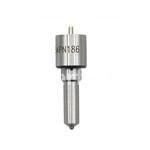Information injection-pump assembly
ZEXEL
101401-7360
1014017360
ISUZU
8971395570
8971395570

Rating:
Service parts 101401-7360 INJECTION-PUMP ASSEMBLY:
1.
_
6.
COUPLING PLATE
7.
COUPLING PLATE
8.
_
9.
_
11.
Nozzle and Holder
8-97119-812-0
12.
Open Pre:MPa(Kqf/cm2)
18.1{185}
15.
NOZZLE SET
Cross reference number
ZEXEL
101401-7360
1014017360
ISUZU
8971395570
8971395570
Zexel num
Bosch num
Firm num
Name
Calibration Data:
Adjustment conditions
Test oil
1404 Test oil ISO4113 or {SAEJ967d}
1404 Test oil ISO4113 or {SAEJ967d}
Test oil temperature
degC
40
40
45
Nozzle and nozzle holder
105780-8140
Bosch type code
EF8511/9A
Nozzle
105780-0000
Bosch type code
DN12SD12T
Nozzle holder
105780-2080
Bosch type code
EF8511/9
Opening pressure
MPa
17.2
Opening pressure
kgf/cm2
175
Injection pipe
Outer diameter - inner diameter - length (mm) mm 6-2-600
Outer diameter - inner diameter - length (mm) mm 6-2-600
Overflow valve
131424-4920
Overflow valve opening pressure
kPa
127
107
147
Overflow valve opening pressure
kgf/cm2
1.3
1.1
1.5
Tester oil delivery pressure
kPa
157
157
157
Tester oil delivery pressure
kgf/cm2
1.6
1.6
1.6
Direction of rotation (viewed from drive side)
Left L
Left L
Injection timing adjustment
Direction of rotation (viewed from drive side)
Left L
Left L
Injection order
1-3-4-2
Pre-stroke
mm
4.1
4.05
4.15
Rack position
Point A R=A
Point A R=A
Beginning of injection position
Governor side NO.1
Governor side NO.1
Difference between angles 1
Cal 1-3 deg. 90 89.5 90.5
Cal 1-3 deg. 90 89.5 90.5
Difference between angles 2
Cal 1-4 deg. 180 179.5 180.5
Cal 1-4 deg. 180 179.5 180.5
Difference between angles 3
Cyl.1-2 deg. 270 269.5 270.5
Cyl.1-2 deg. 270 269.5 270.5
Injection quantity adjustment
Adjusting point
-
Rack position
12.2
Pump speed
r/min
960
960
960
Average injection quantity
mm3/st.
63.5
61.9
65.1
Max. variation between cylinders
%
0
-4
4
Basic
*
Fixing the rack
*
Standard for adjustment of the maximum variation between cylinders
*
Injection quantity adjustment_02
Adjusting point
H
Rack position
9.8+-0.5
Pump speed
r/min
285
285
285
Average injection quantity
mm3/st.
15.5
14.2
16.8
Max. variation between cylinders
%
0
-10
10
Fixing the rack
*
Standard for adjustment of the maximum variation between cylinders
*
Injection quantity adjustment_03
Adjusting point
A
Rack position
R1(12.2)
Pump speed
r/min
960
960
960
Average injection quantity
mm3/st.
63.5
62.5
64.5
Basic
*
Fixing the lever
*
Injection quantity adjustment_04
Adjusting point
B
Rack position
R1+0.05
Pump speed
r/min
1600
1600
1600
Average injection quantity
mm3/st.
72
68
76
Fixing the lever
*
Injection quantity adjustment_05
Adjusting point
C
Rack position
R1-0.45
Pump speed
r/min
500
500
500
Average injection quantity
mm3/st.
45.2
41.2
49.2
Fixing the lever
*
Timer adjustment
Pump speed
r/min
1050--
Advance angle
deg.
0
0
0
Remarks
Start
Start
Timer adjustment_02
Pump speed
r/min
1000
Advance angle
deg.
0.5
Timer adjustment_03
Pump speed
r/min
1600
Advance angle
deg.
5
4.5
5.5
Remarks
Finish
Finish
Test data Ex:
Governor adjustment
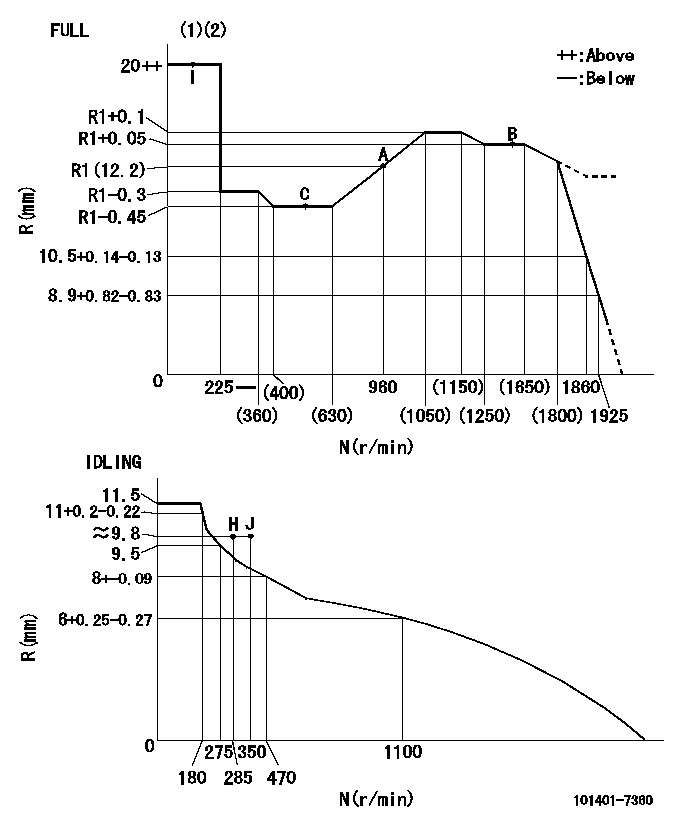
N:Pump speed
R:Rack position (mm)
(1)Torque cam stamping: T1
(2)Tolerance for racks not indicated: +-0.05mm.
----------
T1=L31
----------
----------
T1=L31
----------
Speed control lever angle
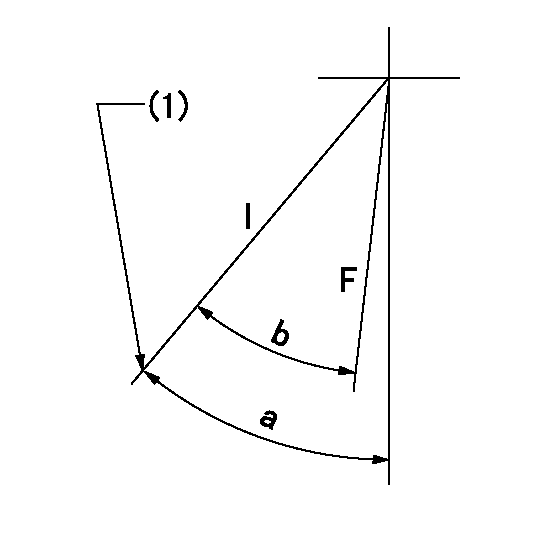
F:Full speed
I:Idle
(1)Stopper bolt setting
----------
----------
a=41deg+-5deg b=35.5deg+-3deg
----------
----------
a=41deg+-5deg b=35.5deg+-3deg
Stop lever angle
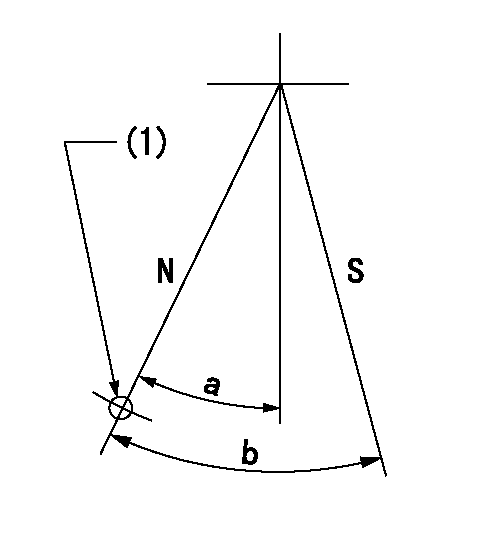
N:Pump normal
S:Stop the pump.
(1)Use the hole at R = aa
----------
aa=64mm
----------
a=20deg+-5deg b=29deg+-5deg
----------
aa=64mm
----------
a=20deg+-5deg b=29deg+-5deg
Timing setting
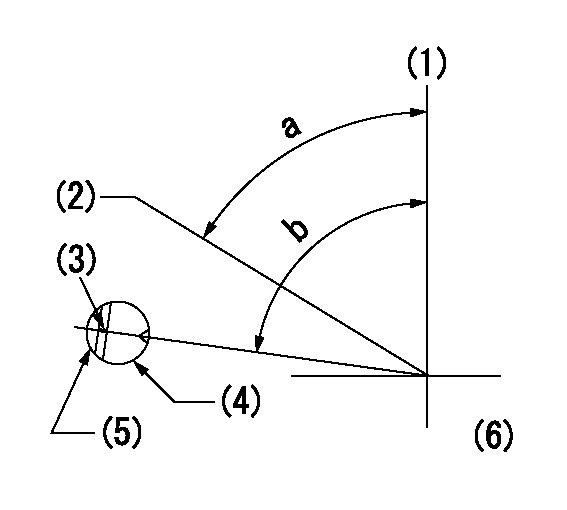
(1)Pump vertical direction
(2)Position of gear's standard threaded hole at No 1 cylinder's beginning of injection
(3)Stamping position on the A/T outer rim
(4)Pump bracket check hole position.
(5)At the No 1 cylinder's beginning of injection, align with the projection seen through the bracket's check hole and mark the A/T's bevel C1.
(6)B.T.D.C.: aa
----------
aa=7deg
----------
a=(60deg) b=(85deg)
----------
aa=7deg
----------
a=(60deg) b=(85deg)
Information:
Overheating1. Defective Temperature Gauge If the temperature gauge shows that the coolant temperature is above normal and all other conditions indicate that conditions are normal, check the coolant temperature in another method, such as: * Read the coolant temperature with an ECAP or DDT.* Install an 8T0470 Thermistor Thermometer Group* Install a temperature sensitive tape.* Install a new gauge that is known to be good.2. Low Coolant Level Low coolant level can cause overheating to occur. Low coolant level can be caused by leaks in the cooling system or by improper filling of the radiator. With the engine cool, the coolant level should be at the low end of the fill neck on the radiator. If the coolant is below this level, a visual inspection should be done to see if any leaks can be seen. If nothing obvious is seen, refer to the topic Loss Of Coolant in this section. Fill the radiator according to recommendations in the Operation & Maintenance Manual.3. Dirty Radiator Check for debris between the fins of the radiator core which could restrict the free flow of air through the radiator core. Also check for debris or deposits on the inside of the core which could restrict the free flow of coolant through the radiator. Clean out any debris that is found.4. Fan Belt Slippage Check for proper fan speed with the fan engaged. Check the belt tension. Check the belt tensioner bearing and spring for proper operation. Check the belt and pulleys for lubricant contaminants which could cause belt slippage. Check the belt for hardening and glaze caused by heat and slippage. Repair or replace any defective parts that are detected.5. Defective Hoses Check the hoses for leaks, cuts and loose clamps. Check for any hoses that are collapsed or restricted that could cause a decrease in the amount of flow of coolant through the engine or radiator. Replace as necessary.6. Defective Pressure Cap Inspect the sealing surface of the pressure cap and the radiator. Look for any damage to the seal or the sealing surface. Remove any foreign material and replace any defective seals. Check the sealing pressure of the cap with the Cooling System Pressurization Pump Group, 9S8140. This will check the opening pressure of the cap. If the cap is defective, replace it.7. Defective Water Temperature Regulator If the water temperature regulator is not opening properly or if the seal is damaged, it can cause the engine to overheat. Check the water temperature regulator for proper operation according to the test procedure for the thermostat located in the Testing and Adjusting section of Systems Operation, Testing and Adjusting, Form No. SENR4964.8. Defective Water Pump Check the water pump impeller for damage or looseness on the shaft. Also, see the topic, Cooling System, in the Testing and Adjusting section of Systems Operation, Testing and Adjusting, Form No. SENR4964.9. Air/Combustion Gas In The Cooling System Air/Combustion Gas in the cooling system reduces the heat transfer from hot engine parts to
